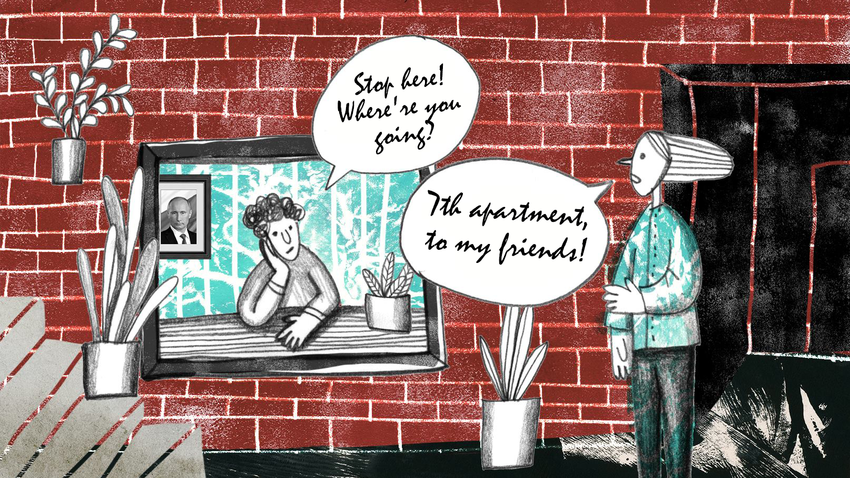Iron ladies: Who are Russia’s ubiquitous concierges, and why do they ask so many questions?

If you want to reach your destination you have to answer all the questions the concierge might ask you - otherwise they'll show you no mercy
Varvara GrankovaYou’re trying to visit a friend who lives in an apartment building, and the door is wide open. Beware: it’s a trap! Before you reach the elevator, a loud voice overtakes you. “Hey you, stop! Where are you going? Which apartment?”And be certain: until you name the apartment’s number you’re not going any further.
You find yourself face-to-face with the classic Russian babushka: a lady in her 60s or 70s with strong nerves and an opinion on everything. This is the Russian version of the concierge – women who are not so refined as their European counterparts, and tough as nails.
In
Making ends meet
These concierges are not rich and often are trying to supplement their pensions (an average Russian pension in 2017 is about 13,700 rubles or $236). According to a 2016 article in The Village, a concierge’s wages are no gold mine, ranging from 9,000 to 12,000 rubles ($155 to $207).
This extra income is in the form of small monthly contributions made by each apartment (sometimes there are additional payments from the city government, but not always). Thus, it’s crucial for the entire building to pay in an organized way and on a regular basis. However, it can be difficult to get all residents to agree and fulfill their obligations.
Quite often, there are a few residents who feel there’s no need for a concierge. This can lead to serious arguments, as well as unpaid wage for the babushkas, who occasionally have to quit and search for a more welcoming and appreciative building.
What are they for?
Those opposing the idea of a concierge usually ask this question. They doubt that such “guards” make the area safer, and doubt that old ladies in their little rooms near the entrance can prevent thieves from robbing apartments on upper floors.
They also can’t always foil vandals who might damage elevators. Moreover, people sometimes complain that the concierge makes it harder for legitimate guests to enter the building, creating additional obstacles with their questions and suspicion.
Another downside of a concierge is that some are nosy and interfere with people’s privacy, spread rumors and criticize everyone they happen not to like. This can be annoying.
Sacred mission
Others are keen to have a concierge and to support them, feeling that they play a meaningful and useful role. “If something happens they can always call
As for the babushkas, many are truly proud of the job they’re doing. “What does it mean to have a concierge in your building? It means to enjoy cleanliness,
They do more than protecting buildings from intruders. A 76-year-old concierge, Nina, says they also make sure that the building’s utilities, such as electricity, are functioning properly, and they help residents call repairmen when needed.
Also, some can be very polite and become dear friends with residents. After all, the questions they ask strangers are not difficult to answer – just be honest and polite.
This article is part of the "Why Russia...?" series in which RBTH answers popular questions about Russia.
If using any of Russia Beyond's content, partly or in full, always provide an active hyperlink to the original material.
Subscribe
to our newsletter!
Get the week's best stories straight to your inbox